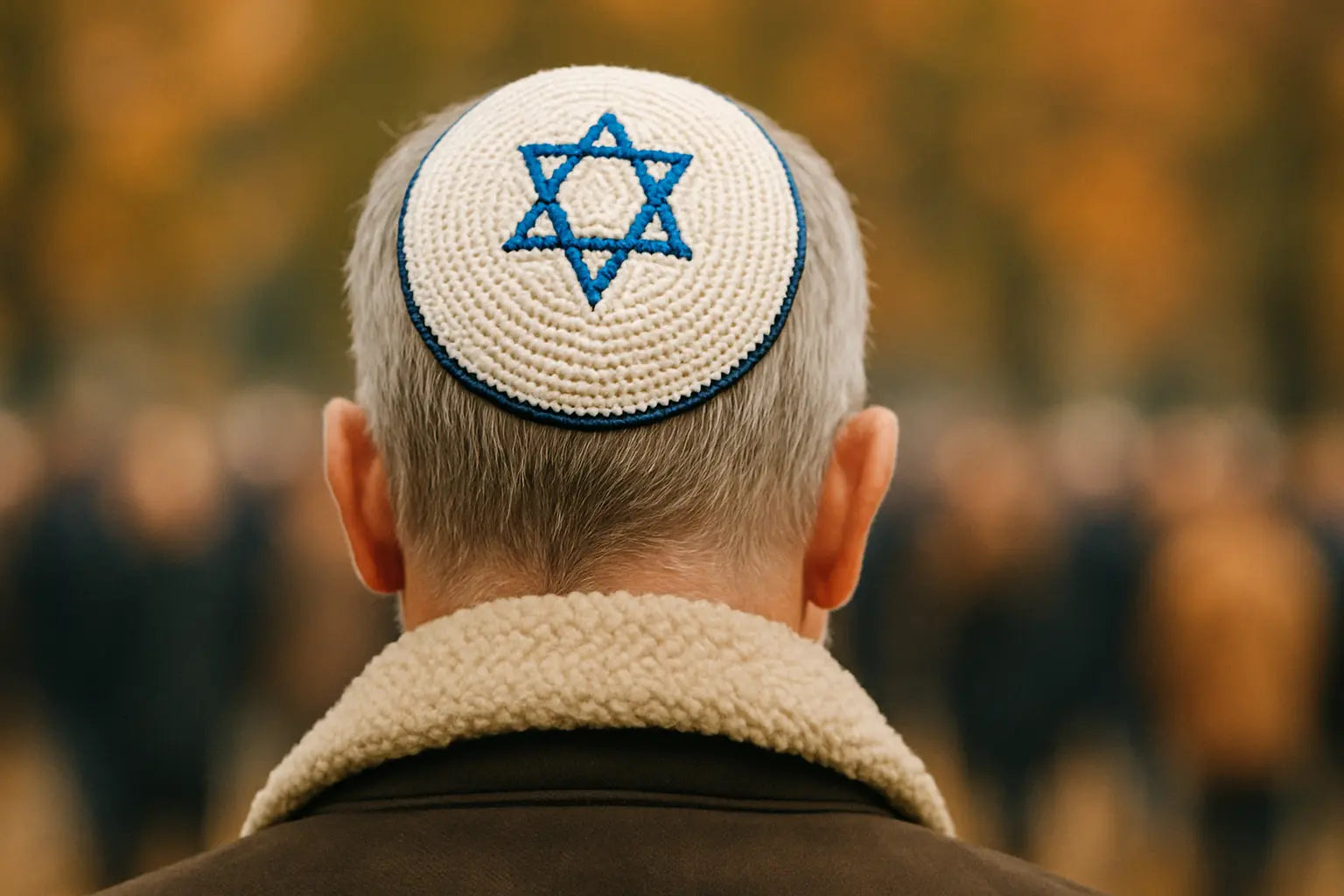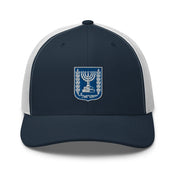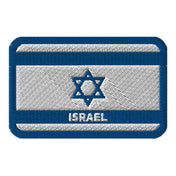Why does a simple piece of fabric on the head mean so much to the Jewish people?
It’s not just tradition. It’s not just culture. It’s something deeper. The kippah — that small, round head covering — is an expression of awe, humility, and identity. It has come to symbolize what it means to be Jewish in public and in private.
And in today’s world, it carries even more weight.
What Does a Kippah Represent?
The word “kippah” comes from Hebrew, meaning “dome.” In Yiddish, it’s often called a yarmulke, which some say comes from the Aramaic “yarei malka” — fear of the King. That’s the heart of it.
Wearing a kippah is a sign that a Jew lives with God above him at all times. That there is something greater than the self. It’s a physical reminder, every second, that we walk through this life with reverence — not just for God, but for the mission He gave our people.
In the Talmud, there’s a teaching: “Cover your head in order that the fear of heaven may be upon you” (Shabbat 156b). For thousands of years, this small act has reminded Jewish men and boys that life is not random — it’s sacred.

It’s Not a Law — But It’s Powerful
There is no commandment in the Torah that explicitly says: “You must wear a kippah.” But over time, it became one of the most visible and powerful signs of Jewish identity.
Jewish law (halacha) evolved to see the head covering as an important part of daily Jewish life. Some rabbis consider it mandatory during prayer, learning, and blessings. Others encourage it at all times.
Why? Because when a Jew wears a kippah, they are aligning themselves with something holy — not just in the synagogue, but on the street, at work, on the battlefield.
It’s a small act. But it says everything.
A Jewish Identity That Cannot Be Hidden
In recent years, many Jews around the world have faced a difficult question: Should I take off my kippah in public?
In some places, wearing a kippah can make you a target. We’ve seen stories in Europe and America of Jews attacked for simply being recognizable. And yet — the love of faith is bigger than any fear. They continue to wear their kippot with dignity.
This is not stubbornness. It’s not arrogance. It’s devotion.
To wear a kippah today is to say: I am not ashamed of who I am. I am a Jew. And I am not alone.

The Kippah and the Legacy of Holiness
The idea of head covering goes all the way back to the priests in the Temple. In Exodus 28, God commands Moses to create special garments for Aaron and his sons — garments of holiness, including a turban or head covering.
“And you shall make holy garments for Aaron your brother, for glory and for beauty.” (Exodus 28:2)
These garments weren’t for show. They reminded the priest — and everyone watching — that service to God demands dignity, humility, and separation from the ordinary.
Today, every Jew is called to be part of a “kingdom of priests and a holy nation” (Exodus 19:6). When we wear a kippah, we connect ourselves to that mission. We say: I want to live with purpose. I want to carry holiness with me, wherever I go.
A Tradition That Begins Early — And Stays for Life
In Jewish communities, boys start wearing a kippah from a young age. It’s not forced. It’s cherished. Parents teach their sons that the kippah is not a burden — it’s a blessing.
It becomes part of the person. Over time, putting on the kippah each morning becomes automatic — like brushing your teeth. But its meaning never goes away.
Even those who don’t wear it all the time — they often still reach for it when they pray, study, or bless food. That’s how deep it runs.
And for many, the moment they put it on — they remember their father, or grandfather, or rabbi, who wore one with honor.

A Modern Statement of Faith
Wearing a kippah today is more than religious custom. It is a quiet but powerful statement of Jewish pride and continuity.
It says: I believe in something eternal. I belong to a people who stood at Mount Sinai. I am not anonymous. I am part of a story that began thousands of years ago — and is still being written today.
It’s a way to carry Jerusalem on your head — no matter where you are.
Find Your Kippah — Wear It With Meaning
At The Israel Store, we are honored to provide a wide selection of beautiful, high-quality kippot — made in Israel, with love and purpose.
We believe that every kippah should feel personal. It should reflect your tradition, your personality, your story.
Shop our Kippot Collection today — and wear your faith with pride, with dignity, and with love.
👉 Browse Now
Let the world know who you are. And never forget Who is above you.






6 commentaires
Thank you Hananja for explaining the kippah. I had so often wonder what is the meaning thereof. I appreciate it very much and it is dear to my heart – the respect for God that we as the wild olive in Jesus Christ the Messiah must have too. Shalom.
From: South Africa
In my IgboHebrew culture the red Okpu (Cap/Kippar) signifies the same thing it not just our Identity, its also a sign of reverence to GD only those who are Holy set aside for the service of CHI UKWU .
The Israelite culture all over the world is thesame.
I am an Igbo man who believe my ancestry is traced from Israel. Thus, I am an Igbo-Jew. I love the Kippah.
Hi i need
Jews are God’s chosen people. He protected them at all times and and in all circumstances.
I wish Israel all success in all its endeavors. May Almighty God protect this Holy country from its enemies and prevail over them and make this country a prosperous one as the Bible predicts.
Am Yisrael Chai.
“There is no commandment in the Torah that explicitly says: ‘You must wear a kippah.’ But over time […] Some rabbis consider it mandatory”.
And that, dear friends, just about sums Judaism for the past 2500 years.